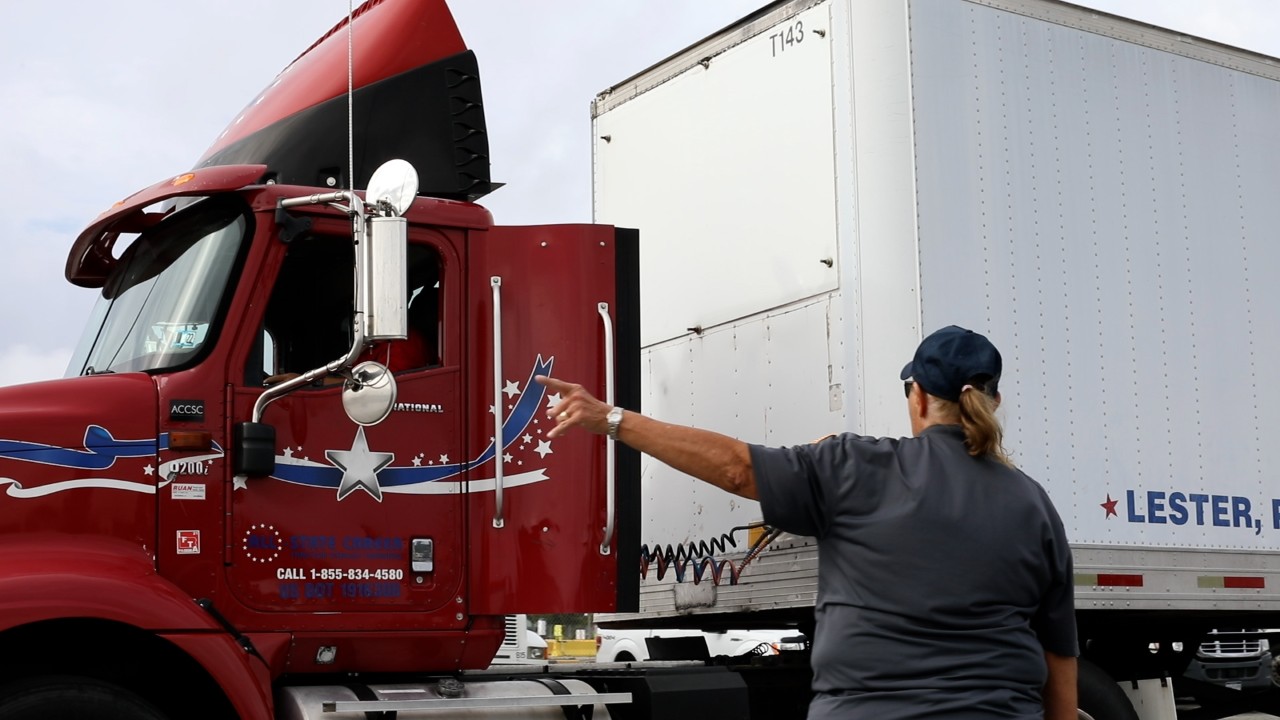The trucking industry helps drive the U.S. economy. In 2021 there were more than 13.8 million single-unit and combination trucks on the road, according to American Trucking Associations. These vehicles transported about 73% of U.S. freight by weight and generated nearly $1 trillion in gross freight revenues.
Behind the scenes are terminal managers, who keep the wheels of transportation and logistics operations turning by helping to ensure that trucks are moving from point A to point B. The work of terminal managers is important because significant delays and inefficiencies can have a profound impact on overall operations, create supply chain delays, and limit consumer access to essential goods. These challenges, combined with persistent truck driver shortages and congestion at ports, can create a domino effect of disruptions that reverberate throughout the economy.
Terminal managers use their leadership, organizational, and problem-solving skills to prevent delays and maintain a steady flow of goods to keep the economy moving forward. For those looking to become a terminal manager and play a pivotal role in the U.S. transportation and logistics industry, enrolling in a commercial truck driving training program can be the first step in launching a successful career.
What Does a Terminal Manager Do?
The role of a terminal manager is multifaceted, involving the coordination of cargo loading and unloading, delivery scheduling, inventory management, and adherence to safety regulations. Their goal is to optimize terminal resources, enhance productivity, and ensure customer satisfaction.
A terminal manager's areas of responsibilities include the following:
Operational oversight, to keep daily activities running efficiently
Resource management, to allocate equipment, labor, and space effectively
Planning and scheduling, to guarantee timely deliveries
Safety and compliance, to make sure operations meet safety protocols and regulatory standards
Customer service, to ensure issues are resolved swiftly and customer expectations are exceeded
Steps to Become a Terminal Manager
Individual terminal managers’ career paths can vary based on several factors. For example, the responsibilities of terminal managers who work at maritime ports may be different from those who work at manufacturing facilities. Regardless of the specific setting, however, gaining relevant education and experience, acquiring key skills, and pursuing certifications and professional development are essential for success in this role.
1. Complete Training
Completing a specialized advanced tractor trailer driving program can help individuals prepare to pursue intrastate and/or interstate commercial driver roles, which can provide the foundational knowledge needed to become a terminal manager. Additionally, holding a bachelor’s degree in logistics, supply chain management, or business is common among terminal managers.
2. Earn Certifications
Understanding transportation laws, vehicle handling, and safety standards is crucial for success in terminal management. This is where obtaining a commercial driver’s License (CDL) proves advantageous. Additionally, pursuing an Occupational Safety and Health Administration (OSHA) certification can enhance an individual’s expertise in regulatory compliance, safety practices, and logistics management.
3. Develop Key Skills
A specific set of skills and qualifications are essential to excel in the role of terminal manager. For example, leadership abilities enable terminal managers to effectively manage teams, provide direction, and make informed decisions. Organizational skills enable terminal managers to manage multiple concurrent tasks, deadlines, and resources. Effective terminal management also requires problem-solving and communication skills, detail orientation, and adaptability.
4. Gain Work Experience
Starting a career in terminal management often involves securing an internship, apprenticeship, or entry-level role within a logistics or transportation firm, or directly in terminal operations. Positions such as warehouse supervisor, logistics coordinator, or commercial truck driver provide an excellent opportunity to gain relevant experience and learn the basics of terminal management.
5. Continue Professional Development
Terminal managers can seek out professional growth opportunities by taking on more responsibilities, being proactive in embracing new challenges, and demonstrating leadership skills. Participating in ongoing education, such as by attending workshops, enrolling in courses, or participating in industry events, is an effective way for terminal managers to augment their competencies and prepare for senior positions in terminal management.
Job Outlook for Terminal Managers
Terminal managers play a vital role in ensuring the smooth functioning of logistics and transportation, a sector facing a projected truck driver shortage of 160,000 by 2030, according to the American Journal of Transportation.
Terminal managers are classified as logisticians by the U.S. Bureau of Labor Statistics, which projects the profession will experience 18% job growth from 2022 to 2032. This data reflects the sector’s dynamic nature and the ongoing need for skilled professionals due to workforce turnover and career shifts. Additionally, the BLS projects 4% job growth for truck drivers during this same period, further highlighting opportunities in logistics.
Get on the Path to Becoming a Terminal Manager
Terminal managers are key players in the logistics and transportation sector. The All-State Career Advanced Tractor Trailer Driving Program — which is offered at campuses in Baltimore; Pittsburgh; and Essington, Pennsylvania — provides an excellent starting point for those aspiring to enter this dynamic field. By developing essential skills and gaining valuable experience, individuals can play a pivotal role in keeping the economy moving.
Learn more about the commercial truck driving training program at All-State Career, and take the first step toward a role as a terminal manager.
Recommended Readings
What is Entry-Level Commercial Driver Training?
How to Get Into Long-Haul Trucking
How to Become a Commercial Truck Driver

